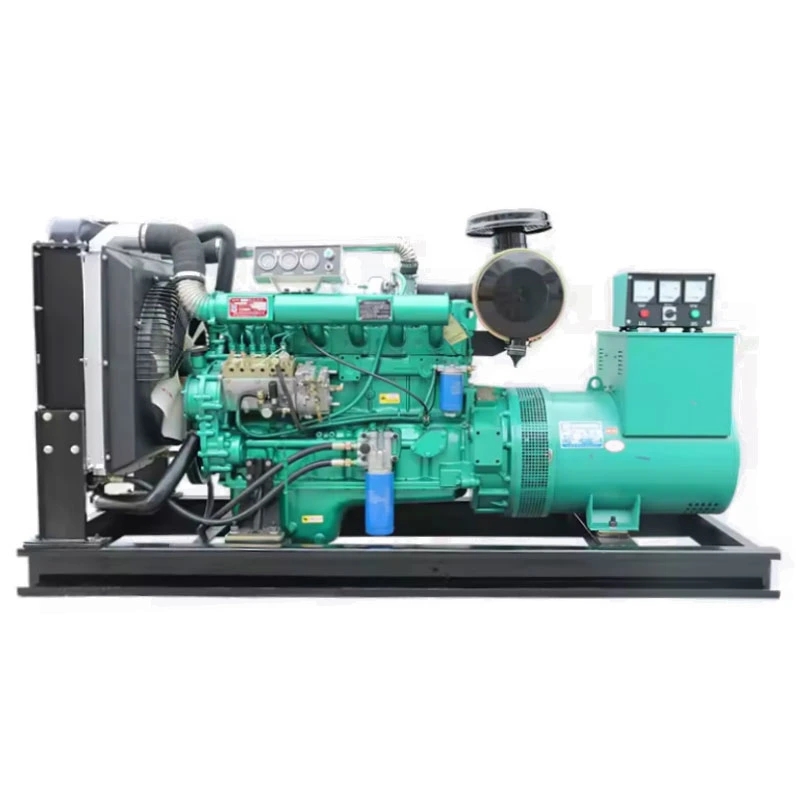Introduction
In regions with humid climates, such as tropical and subtropical areas, the need for reliable power generation is essential to support various industries, businesses, and communities. Diesel generators have long been a popular choice for providing backup power in these environments due to their robustness, efficiency, and ability to operate under challenging conditions. This article explores the use of diesel generators in humid climates, highlighting their benefits, considerations, and maintenance practices to ensure reliable power supply.
Understanding Diesel Generators
Diesel generators are a type of internal combustion engine that converts diesel fuel into electrical energy. They consist of a diesel engine coupled with an alternator to produce electricity through the process of combustion. Diesel generators are known for their durability, high efficiency, and ability to provide continuous power for extended periods, making them suitable for both standby and prime power applications in various settings.
Benefits of Diesel Generators in Humid Climates
1. Robustness: Diesel generators are known for their robust construction and reliability, making them well-suited for operation in humid climates where extreme weather conditions and environmental factors can pose challenges to power generation equipment. Their sturdy design allows them to withstand moisture, heat, and humidity, ensuring continuous operation even in adverse conditions.
2. Fuel Efficiency: Diesel generators are more fuel-efficient compared to other types of generators, making them a cost-effective choice for long-term power generation in humid climates. The high energy density of diesel fuel allows diesel generators to produce more power per unit of fuel, resulting in lower operating costs and increased efficiency, especially in areas where access to fuel may be limited.
3. Quick Start-Up Time: Diesel generators have a fast start-up time, which is crucial in environments where sudden power outages or fluctuations are common. The ability to provide power within seconds of an outage ensures that critical systems and equipment remain operational, minimizing downtime and disruptions in essential services.
4. Load Handling Capability: Diesel generators are capable of handling varying loads efficiently, making them ideal for applications with fluctuating power demands. In humid climates where power requirements may change due to weather conditions or seasonal variations, diesel generators can adapt to meet the changing load demands without compromising performance or reliability.
Considerations for Using Diesel Generators in Humid Climates
While diesel generators offer numerous benefits for power generation in humid climates, there are several key considerations to keep in mind to ensure optimal performance and longevity:
1. Air Quality: Humid climates can contribute to poor air quality due to increased moisture levels and the presence of contaminants in the atmosphere. It is essential to regularly inspect and maintain the air intake and filtration systems of diesel generators to prevent the ingress of moisture, dust, and other pollutants that can compromise engine performance and efficiency.
2. Cooling System: High humidity levels can impact the cooling system of diesel generators, leading to overheating and reduced efficiency. Proper maintenance of the cooling system, including monitoring coolant levels, checking for leaks, and cleaning the radiator and heat exchanger, is essential to prevent overheating and ensure optimal engine performance in humid environments.
3. Corrosion Protection: Exposure to moisture and humidity can accelerate corrosion and rust formation on the components of diesel generators, including the engine, alternator, and fuel system. 75kw diesel generator for construction sites , cleaning, and application of corrosion-resistant coatings can help prevent corrosion damage and extend the lifespan of the generator in humid climates.
4. Ventilation and Air Circulation: Adequate ventilation and air circulation are critical for diesel generators operating in humid climates to prevent the buildup of heat, moisture, and exhaust gases that can affect engine performance and reliability. Proper installation of ventilation systems, exhaust pipes, and cooling fans can help maintain optimal operating conditions for the generator in humid environments.
Maintenance Practices for Diesel Generators in Humid Climates
Regular maintenance is essential to ensure the reliable operation and longevity of diesel generators in humid climates. Some key maintenance practices to follow include:

1. Regular Inspections: Conduct routine visual inspections of the generator components, including the engine, alternator, fuel system, and electrical connections, to identify any signs of wear, corrosion, or damage. Addressing issues promptly can prevent costly repairs and downtime in the long run.
2. Fluid Checks and Changes: Monitor fluid levels, including coolant, engine oil, and fuel, and perform regular checks to ensure they are at the recommended levels. Change fluids at the specified intervals to maintain optimal engine performance and efficiency in humid conditions.
3. Filter Replacements: Replace air, fuel, and oil filters at the recommended intervals to prevent contaminants from entering the engine and causing damage. Clean or replace filters more frequently in humid climates to ensure proper airflow and filtration efficiency.
4. Fuel Quality: Use high-quality diesel fuel with the correct specifications and additives to prevent fuel degradation, contamination, and microbial growth in humid environments. Regularly test and treat fuel to maintain its stability and ensure reliable operation of the generator.
5. Electrical System Checks: Inspect electrical connections, wiring, and components for signs of corrosion, loose connections, or damage that can affect the performance of the generator. Ensure proper grounding and electrical safety measures are in place to prevent electrical hazards in humid conditions.
Conclusion
Diesel generators play a crucial role in providing reliable power generation in humid climates, where environmental factors and weather conditions can pose challenges to power supply. Their robustness, fuel efficiency, quick start-up time, and load handling capability make them a popular choice for backup and prime power applications in various settings. By following proper maintenance practices, considering key factors such as air quality, cooling system efficiency, corrosion protection, and ventilation, diesel generators can continue to operate efficiently and effectively in humid environments, ensuring uninterrupted power supply for critical systems and services.
